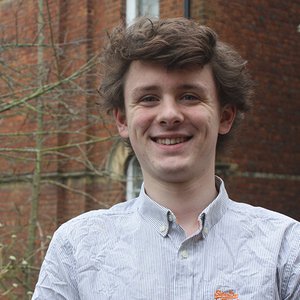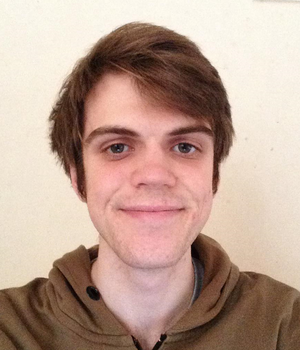Two St John's students have won places on the Laidlaw Scholars Programme
The Laidlaw Scholars Programme was launched at the University of Oxford in 2016, building upon Lord Laidlaw of Rothiemay’s commitment to supporting undergraduate student development and education. The Programme equips undergraduate students with research and leadership skills, to help them pursue their academic and professional aspirations beyond their current course of study.
Students first complete a Leadership Development Programme, resulting in an Institute of Leadership and Management (ILM) qualification. They then design and undertake a research project over 8-10 weeks, at a world-leading research institution of their choice.
 In 2017, one of the 18 students from Oxford chosen for the programme was Daniel Sutton, a second-year History student at St John's. Daniel's project was 'Thucydides and truth; sincerity and irony in the History of the Peloponnesian War'. He worked over the summer of 2017 in Oxford, supervised by Professor Tim Rood, and produced an article of some 12,000 words.
In 2017, one of the 18 students from Oxford chosen for the programme was Daniel Sutton, a second-year History student at St John's. Daniel's project was 'Thucydides and truth; sincerity and irony in the History of the Peloponnesian War'. He worked over the summer of 2017 in Oxford, supervised by Professor Tim Rood, and produced an article of some 12,000 words.
Speaking of his experience Daniel commented, 'The Laidlaw Programme has offered me a fantastic opportunity to undertake independent research with a world-leader in my field... Had I not undertaken this I would either not have applied for Masters/PhD programmes, or applied without knowing what I was signing up for... Having to explain my project to a group of non-specialists persuaded me that I could use my understanding of Ancient History to actually inspire and engage, rather than enjoy it merely as a personal interest.'
 The new Oxford Laidlaw Scholars for 2018 have recently been announced, and they include Thomas Gate, a fourth-year Biochemistry student at St John's.
The new Oxford Laidlaw Scholars for 2018 have recently been announced, and they include Thomas Gate, a fourth-year Biochemistry student at St John's.
Thomas explains, 'I applied to the Laidlaw Scholarship to fund a summer project in the Weng lab in the Whitehead Institute at MIT. I will be researching specialised metabolism in plants, which produces a huge variety of small molecules that have been used in traditional medicine. However, total chemical synthesis of these molecules is currently impossible in many cases, and so my project hopes to begin to address this. Focusing on one specific group of metabolites, which have tested therapeutic value as antiretrovirals and anticancer agents, I plan to work out which genes are involved in the synthesis of these molecules and from here genetically engineer yeast to synthesise them, to facilitate creating these agents on a large scale.
I am very happy to have been awarded the scholarship and excited to start making the most of the opportunity it has given me.'